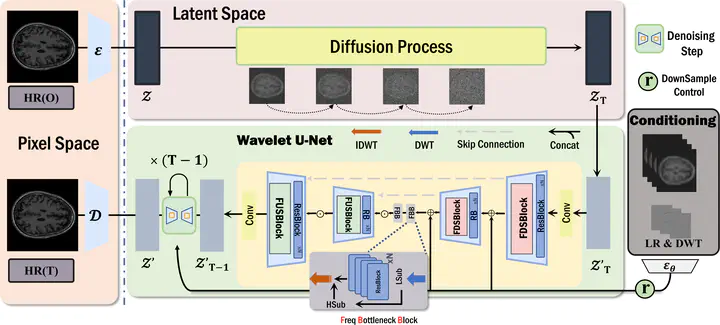 Model Architecture
Model ArchitectureAbstract
Alzheimer’s disease (AD) is a neurodegenerative disorder that exerts a substantial influence on individuals worldwide. Magnetic resonance imaging (MRI) can detect and track disease progression. However, the majority of MRI data currently available is characterized by low resolution. The present study introduces a novel approach for MRI super-resolution by integrating diffusion model with wavelet decomposition techniques. The methodology proposed in this study is tailored to address the issue of restricted data availability. It utilizes adversarial training and capitalizes on the advantages of denoising diffusion probabilistic model (DDPM), while simultaneously avoiding the problem of diversity collapse. The proposed method incorporates wavelet decomposition within the latent space to augment the resilience and efficiency of generative models. The experimental findings demonstrate the superior efficacy of our proposed model in contrast to alternative techniques, as indicated by the SSIM and FID metrics. Moreover, our methodology has the potential to enhance the precision of Alzheimer’s disease assessment.